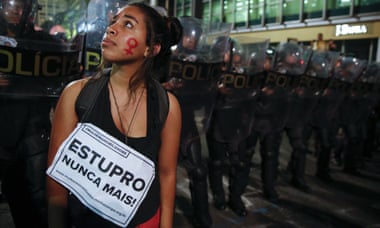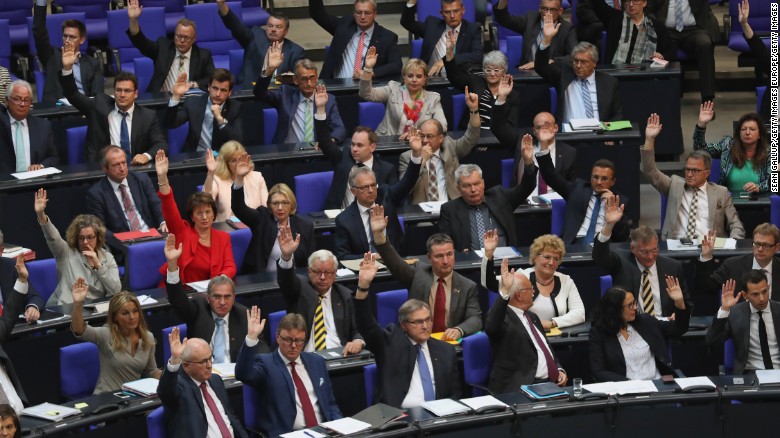By Cintia Garcia
Impunity Watch Reporter, South America
BRASILIA, Brazil—The alleged gang rape of a 16-year-old girl from a Favela in Brazil has stirred numerous protests. Thousands of protesters have poured to the streets of Brazil condemning the alleged rape, causing individuals and groups to stand up against gender violence and the “machismo” attitude against women in Brazil.

In Rio De Janeiro, about 2,000 individuals chanted and held signs against rape with slogans such as “No means No.” In Sao Paulo, hundreds gathered for a simultaneous protest. The protesters’ goal is to end gender violence and to call upon the government to act. The alleged rape of the 16-year-old girl has highlighted the deeply rooted acceptance of violence against women in Brazil. Crimes against women have been dismissed by the public. Brazil has the fifth highest rate of femicide. Studies have shown that 7.5% to 10% of women in Brazil will report an incident of sexual violence. Protest coordinators want to let women know they do not have to be silent but to report the crime.
Coincidentally, in Argentina, protests against gender violence have also taken place. Thousands gathered in the streets of Buenos Aires to voice their condemnation of the alleged rape of the 16-year-old girl in Brazil and of the killing of three 12-year-old girls in Argentina. The slogan for the protest was “Not one less.” In Argentina, 275 gender based killings occurred last year. In 30% of the cases the attacker was a current partner of the victim, and an ex-partner in 49% of cases. Social media is proving to be an outline for victims of crime and to raise awareness through out Latin America.
A short video of the alleged gang rape of the 16-year-old girl in Brazil surfaced on twitter. It showed 30 to 33 men boasting about the rape. She was naked, drugged and semi-unconscious in the video. The video received hundreds of likes and blamed the girl for the rape. The girl in a statement stated that she had gone to her boyfriends and woke up the next day in a different location surrounded by men raping her. The family of the girl allege her boyfriend was behind the rape in order to punish her. Some arrests have been made since the video became public, but police continue to search for the rest of the men involved.
For more information, please see:
CNN—Brazilian Teen Speaks out About Brutal Gang Rape—30 May 2016
CNN—2 men Arrested, 4 Sought in Brazilian Gang Rape, Government Says—31 May 2016
The Guardian—Brazil and Argentina Unite in Protest Against Culture of Sexual Violence—3 June 2016
Fox Latino— Thousands March in Argentina to Protest Violent Attacks on Women—4 June 2016



